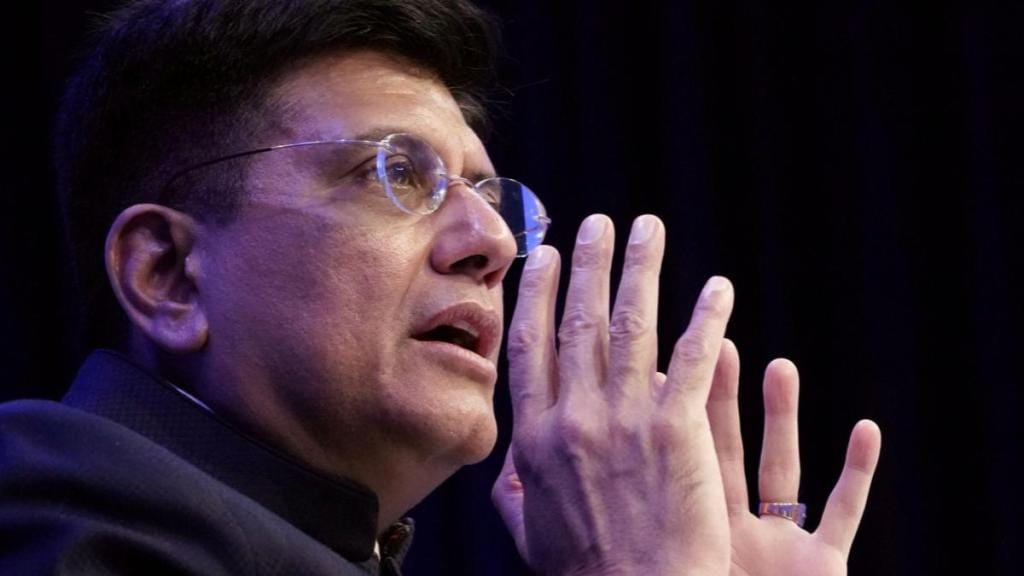Commerce and industry minister Piyush Goyal on Thursday floated the idea of a border adjustment tax (BAT) to address the price disadvantages being faced by local companies against imported products due to multiple local taxes.
BAT is a tax that is imposed on imports in addition to basic custom duties. It seeks to offset the extent of taxes that local producers pay, so that the import tariffs are real.
“Border adjustment tax is a World Trade Organization-compliant mechanism. If all industry associations like CII, Ficci and Assocham can take up this idea, we may be in a position to gain traction and get BAT into the country. BAT can even be imposed on imports from countries with which the country has free trade agreements,” Goyal said at Indian Steel Alliance’s (ISA) ‘Steel Conclave’ here.
The minister also assured domestic steelmakers, which are facing a margin squeeze due to influx of cheap imports of steel, that their concerns would be addressed. “We are with you and (will do) whatever it takes to get the steel industry rocking, help India grow, add new jobs…,” he said.
On Wednesday, Union steel minister H D Kumaraswamy had said that he would try to convince the finance ministry to raise duties on steel imports to 10-12% from 7.5% at present. He also expressed concerns on the manner in which China was “dumping steel into India.”
Elaborating on BAT, Goyal said, “Imports, even from FTA countries, may have to be (subjected to local levies such as) electricity duty, coal cess, or any additional state levies or taxes that (domestic industry) is not getting relief from.”
The WTO allows BAT if it is applied equally to imports and similar domestic products, while sticking to stance while exports are zero-rated, they should not be subsidised.
Goyal noted that the earlier move on BAT did not succeed, but said it could be explored again. The steel industry is facing a lot of duties and cesses including royalties and other taxes on iron ore duties and coal cess while dealing with surging imports.
Goyal said Japanese and Korean companies prefer domestically produced steel even if it costs them more, “whereas sadly many friends in our industry don’t have a similar approach”.
ISA president Naveen Jindal had earlier said, “We need protection from imports happening into India at predatory prices, including from countries that we have signed FTAs with. Chinese companies have set up capacity far beyond consumption in those counties. That is damaging the Indian steel industry.”
The minister asked the industry to inform the government of any unfair trade practices in other countries so that India can take steps to deal with those barriers.
“I’m keen to know more from you what we can do…we may retaliate, may even take some action in such instances, to curb any irrational imports,” Goyal said.
Earlier in his address, the minister asked the industry to set a target of 500 MT capacity by 2034 and find new and better ways towards low emission, high productivity and high quality to make India an irresistible steel manufacturer in the world. He urged the industry to utilise artificial intelligence (AI) to optimise production, reduce waste, improve efficiency across the value chain and integrate indigenous machinery for domestic production.


